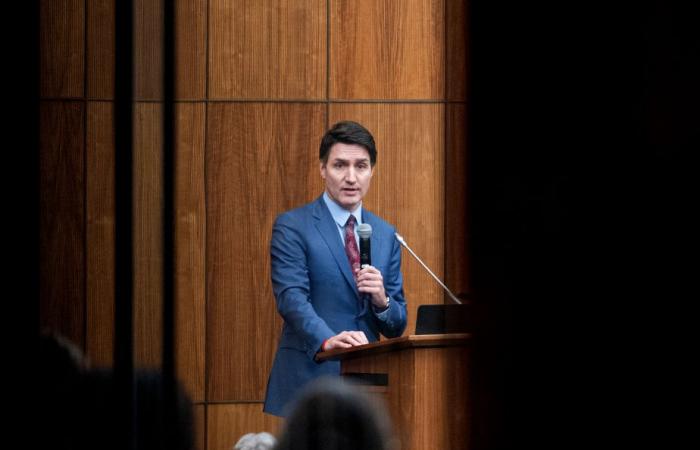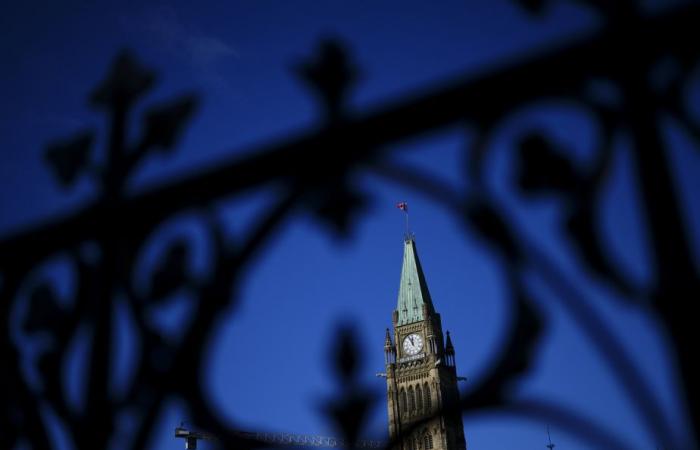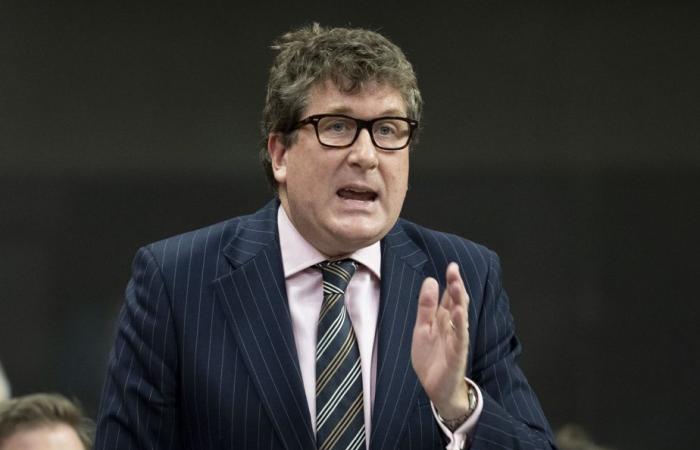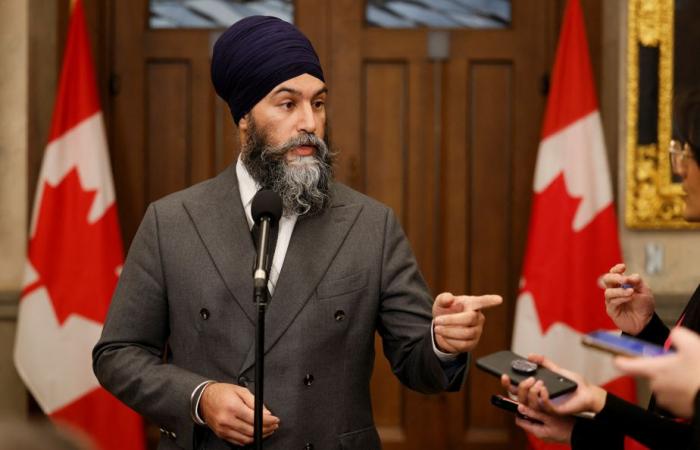(Ottawa) Prime Minister Justin Trudeau is reportedly considering his future while on vacation following the resignation of his most senior minister, Chrystia Freeland, in mid-December. The shock decision sparked a new wave of calls for Mr. Trudeau to step down as Liberal leader, inside and outside the caucus.
Posted at 2:14 p.m.
David Baxter
The Canadian Press
As MPs are due to return to the House of Commons on January 27, the Liberals’ hold on power appears fragile. The New Democratic Party (NDP), which has been a consistent ally of the minority government since the 2021 election, no longer intends to support the Liberals.
Here’s a look at some of the scenarios that could happen in the coming weeks.
The extension
Whether or not Mr. Trudeau resigns as Liberal leader, the government could request a prorogation to end all activities in the House of Commons.
PHOTO SEAN KILPATRICK, CANADIAN PRESS ARCHIVES
If Governor General Mary Simon grants the extension request, all pending bills would die on the Order Paper.
Once the House convenes, a new Speech from the Throne would outline the government’s new legislative agenda. Additionally, bills that were pending before the prorogation could potentially be revived.
In 2008, then-Prime Minister Stephen Harper prorogued Parliament shortly before a vote of no confidence that could have led to the defeat of his minority Conservative government and its replacement by an NDP-Liberal coalition supported by the Bloc. Quebecois.
The vote of censure
The Conservatives, the Bloc Québécois and the NDP all say they are ready to overthrow the Liberal government with a vote of no confidence.
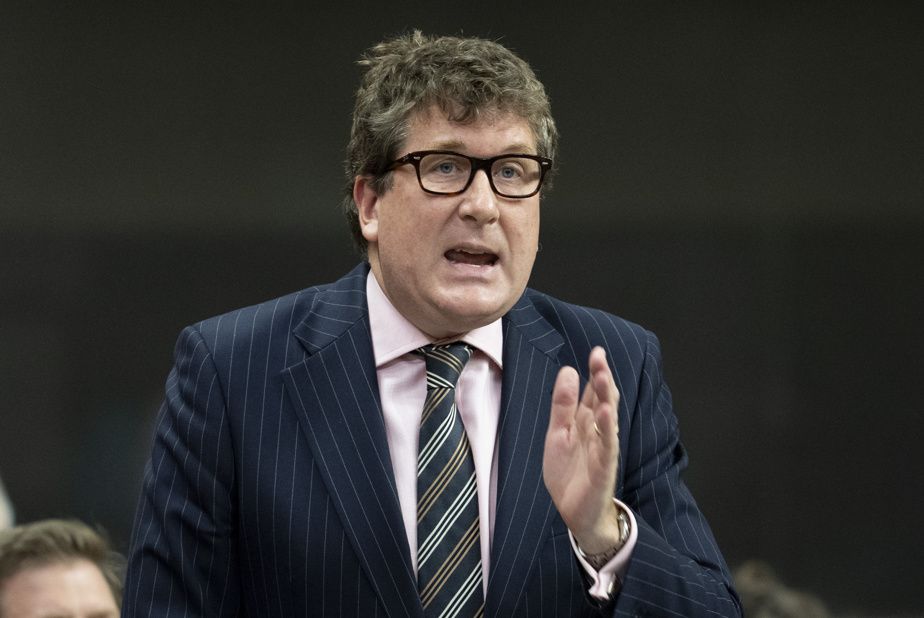
PHOTO ADRIAN WYLD, CANADIAN PRESS ARCHIVES
New Brunswick Conservative MP John Williamson
Passing a motion of no confidence in the House of Commons could trigger an immediate election campaign.
An opportunity to overthrow the government could present itself as early as January 30, with the plan of New Brunswick Conservative MP John Williamson to pass a motion to the Public Accounts Committee.
Mr Williamson intends to present a motion of no confidence at the Conservative-led committee’s next meeting on January 7. He said he would continue to schedule meetings throughout January if Liberal members of the committee obstruct the motion.
If the motion passes, Williamson said, it would be sent to the House of Commons for further debate and could be put to a vote as early as January 30.
The Liberals survived previous Conservative motions of censure with the support of the NDP. It appears that this will no longer be the case. NDP Leader Jagmeet Singh has announced that his party will present its own motion of no confidence as soon as possible, regardless of who becomes Liberal leader.
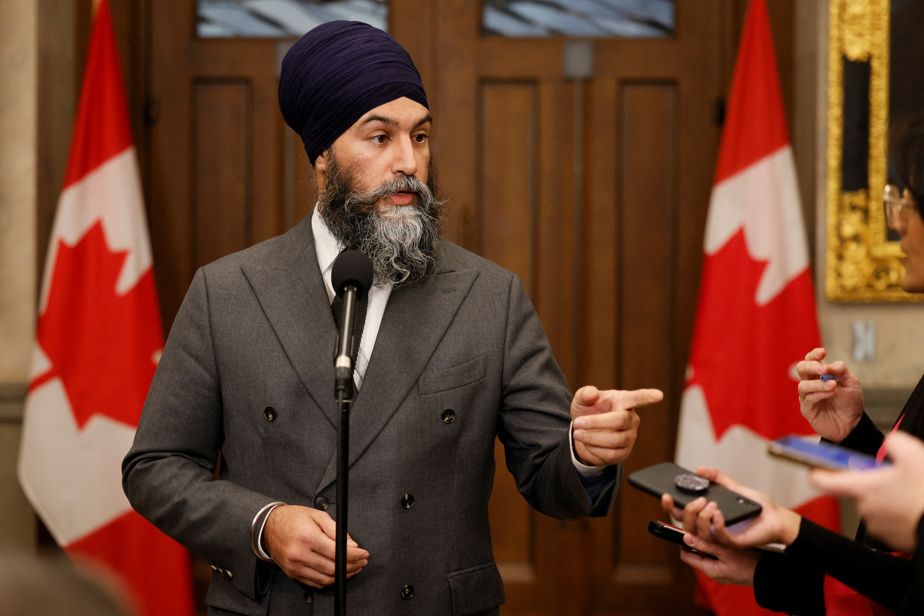
PHOTO BLAIR GABLE, ARCHIVES REUTERS
NDP Leader Jagmeet Singh
The Conservatives, New Democrats and Bloc will all have opposition days before March 26, when they will be allowed to present motions of no confidence.
However, it is up to the government House leader to plan these days, so they could not take place before mid-March or the end of March.
A liberal race
If Justin Trudeau gives in to calls to resign, it will trigger a race to succeed him.
Under the Liberal Party’s constitution, the party’s executive must call a meeting within 27 days of the leader’s resignation to establish the rules and infrastructure for a leadership contest.
A provision in the constitution says the Liberal caucus could be consulted on who becomes interim leader. A letter from the party’s Atlantic caucus, dated Dec. 23, urges Mr. Trudeau to resign and requests caucus consultation in the event of a leadership race.
The constitution contains no rules on the length of a leadership contest, but candidates must collect the necessary signatures and submit a written nomination letter to the party president at least 90 days before the vote.
A registered Liberal is defined as a person who has been a member of the party for 41 days before the vote and who complies with the registration requirements.
All registered members are entitled to one vote, with ballots weighted equally for each electoral district in Canada. Each constituency is worth 100 points.
Justin Trudeau stays in place
There is no mechanism within the Liberal Party for the caucus to remove Mr. Trudeau as leader in these circumstances, so the decision to stay or leave is solely his.
If Mr. Trudeau tries to weather the storm, he could lead the party into the next election, which must take place by October. But given opposition parties’ promise to call early elections, Canadians could go to the polls much sooner.
The Liberals may struggle to secure a fourth term, with opinion polls suggesting the Conservatives have held a commanding lead for more than a year.

